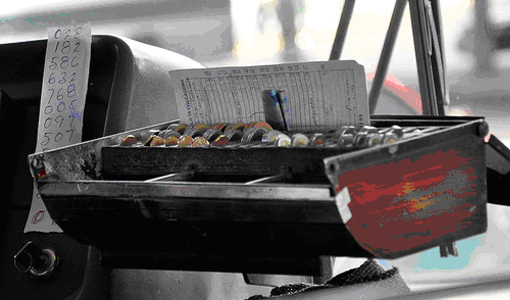UCI Institute for Money, Technology & Financial Inclusion awards inaugural grants

UCI Institute for Money, Technology & Financial Inclusion awards inaugural grants
- August 26, 2009
- Awards totaling $230,000 will fund 17 projects investigating financial habits of world's poorest people
Irvine, Calif., August 26, 2009
 UC Irvine's newly established Institute for Money, Technology and Financial Inclusion
(IMTFI) has awarded its first group of annual grants totaling $230,000 for research
projects aimed at understanding how the world's poorest people spend, store and save
money.
UC Irvine's newly established Institute for Money, Technology and Financial Inclusion
(IMTFI) has awarded its first group of annual grants totaling $230,000 for research
projects aimed at understanding how the world's poorest people spend, store and save
money.
Findings from the studies, says Bill Maurer, anthropology department chair and director
of the institute, will be of significant importance to countries where low-income
populations have limited or no means for securing loans and banking services, including
impoverished populations here in the United States.
"Learning the innovative ways that very poor people around the world survive financially
and manage to save and transfer wealth will be useful for policy makers, scholars,
and the financial and information technology communities who are trying to come up
with new systems to help the unbanked and poor both at home and abroad," he says.
Selected from 49 submitted proposals from all over the world, the inaugural group
of 17 projects will involve research in 14 different countries on topics that run
the gamut from an analysis of rudimentary financial practices in a remote corner of
Russia to learning how cell phone-based money transfer systems may impact the poor
in Sri Lanka.
Equally as diverse, says Maurer, is the list of agencies, institutions and individuals
who will carry out the research.
"We have a good mix of international graduate students, professors, non-governmental
organizations and microfinance institutions among our first funded group," he says.
One group to receive funding is the anthropology department at Shia Degree College
in Lucknow, India. Researchers there will examine how embroidery workers overcame
the need for individual collateral and personal wealth required by many banks to secure
a loan by creating informal networks of 20 women who pooled their resources to grow
their businesses.
A project to be completed by the RiOS Institute in California will investigate how
poor people seeking business loans in Chiapas, Mexico use the online, U.S.-based nonprofit
kiva.org, to connect with lenders.
Another project by a political scientist in Kenya will explore how traditional religious
figures in southeastern Nigeria become sources of credit for the poor people who come
to them for spiritual advice.
Learn more about each funded study online at http://www.imtfi.uci.edu/imtfi_fundedprojects2009.
As part of the award agreements, all grant recipients will attend a three-day conference
at UC Irvine November 4-6, 2009 where they will present progress reports on their
year-long studies. The conference will be open to members of the public. To register,
please email imtfi@uci.edu or call (949)824-2284. There is no registration cost. Please click here for conference details.
The institute recently announced its second call for proposals. Guidelines, deadlines
and further details are available online at http://www.imtfi.uci.edu/imtfi_cfp2009.
About the Institute for Money, Technology and Financial Inclusion:
Housed within the School of Social Sciences at the University of California, Irvine,
the Institute for Money, Technology and Financial Inclusion (IMTFI) was established
in 2008 through a $1.7 million grant from the Bill & Melinda Gates Foundation. It
explores how the world's poorest people spend, store and save money and how their
habits are or could be affected by emerging technologies that provide greater access
to financial services, such as mobile phone enabled banking, funds transfer and payment
or branchless banking using point of sale terminals. The institute also funds research
in developing countries, hosts conferences, and plans to develop an archive on the
emerging m-banking industry.
Retrieved from School of Social Sciences website at UC Irvine on 8/26/09
*Photo courtesy of subaward recipient Melissa Cliver taken in Oaxaca, Mexico.
Share on:


connect with us